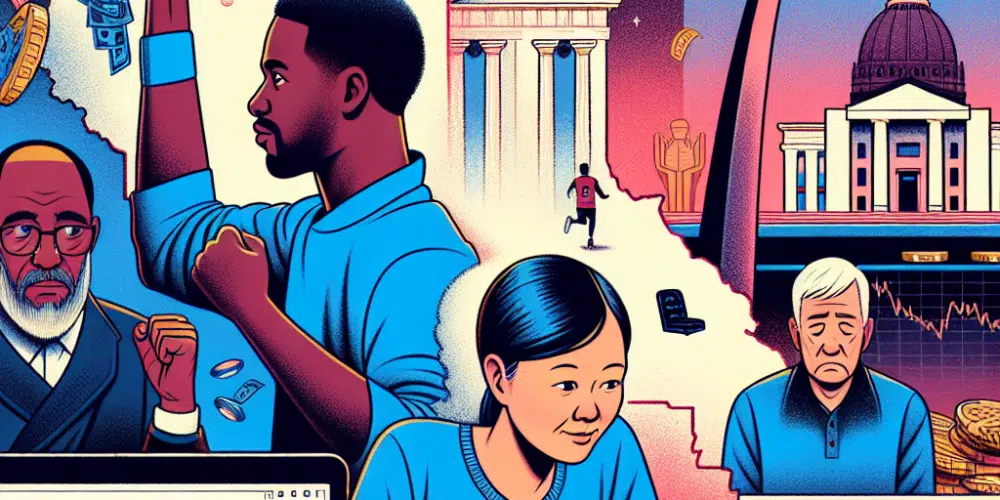On September 17, 2025, Missouri announced its move to legalize online sports gambling, granting 10 licenses to major industry players like Bet365, BetMGM, DraftKings, and Fanatics. This shift positions Missouri among the growing list of states embracing online sports betting, a move anticipated to boost both state revenue and consumer engagement.
However, the launch has stirred debate among stakeholders, with concerns primarily centered around the potential rise in gambling addiction. The Missouri Alliance to Curb Problem Gambling has been vocal about the potential consequences. Keith Spare, the chair of the organization, highlighted the state’s lack of preparedness to handle an increase in individuals developing gambling-related problems. He pointed out the convenience of online betting as a significant risk factor, allowing people to place wagers from virtually anywhere and at any time.
Spare presented a stark picture of the current situation in Missouri, where gambling is already ingrained in the culture, given the existence of 13 riverboat and land-based casinos. He shared that 60% of Missouri’s population participates in gambling activities, with 20% experiencing related harms. These figures underscore the pressing need for robust support systems as online sports betting becomes more accessible.
The state offers certain resources for those struggling with gambling issues. The Missouri Problem Gambling Helpline operates around the clock at 888-BETS-OFF/888-238-7633. Additionally, organizations like Gamblers Anonymous provide support, and the state’s Voluntary Exclusion Program is available to help individuals restrict their access to gambling venues.
Despite these measures, Spare and others worry that the current infrastructure is insufficient to manage the expected surge in problem gambling cases. They argue that more comprehensive strategies are needed to mitigate potential harm and provide effective assistance to those in need.
Proponents of the legalization argue that the economic benefits cannot be ignored. The state stands to gain significantly from taxation on betting activities, a revenue stream that many believe will support public services and infrastructure projects. Additionally, they claim that regulated online sports betting will enhance consumer protection by bringing operations out of the shadows and into a monitored environment.
Nonetheless, the potential for increased addiction remains a critical concern. There is a call for enhanced educational campaigns to inform the public about the risks of gambling and promote responsible betting practices. Some advocates suggest that a portion of the revenue generated from sports betting should be allocated specifically to funding addiction treatment and prevention programs.
Opponents of the expansion argue that the allure of easy money can lead to financial ruin for the vulnerable, pointing to examples from other states where the introduction of online betting saw a sharp rise in debt and bankruptcy cases among problem gamblers. They urge lawmakers to consider these outcomes and implement stringent regulations before the full rollout of online sports betting.
To strike a balance, some suggest adopting a phased approach to the launch, allowing the state to monitor the impact closely and adjust policies accordingly. This could involve setting initial limits on betting amounts and restricting certain forms of advertising that target vulnerable populations.
As Missouri stands on the brink of this new era in gambling, the debate continues, highlighting the need for a careful, informed approach that weighs economic benefits against the social costs. The success of online sports betting in Missouri will likely depend on how well the state can address these multifaceted challenges while fostering a safe and responsible gambling environment.

David Garato is a luminary in gaming journalism, renowned for peeling back the curtain on the gaming world with his witty and insightful commentary. A decade into weaving stories from the pixelated edges of indie games to the expansive universes of AAA titles, David’s work is a thrilling blend of analysis and adventure. When not writing, he’s live-streaming, sharing his gaming exploits with an engaged and growing audience. David doesn’t just write about games; he lives them, making him a trusted guide in the gaming community.
















